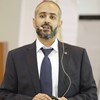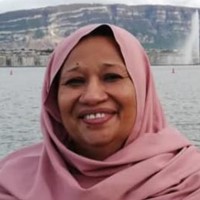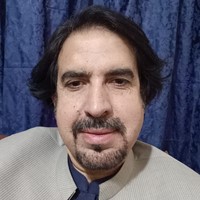



James McArthur
Climate and Disasters Assessment Officer
Biography
Environment and human security professional based in Geneva with IMPACT Initiatives, a research think and do tank. Supported emergency responses in Bangladesh, Jordan, Syria, Iraq, Mozambique, Armenia, and Ukraine. Since 2018 an UNDAC operational support partner representing REACH, and user of the Flash Environmental Assessment Tool (FEAT).
Organisation
IMPACT Initiatives
Speaker session
Breakout session 3: Adapting Humanitarian Operations to the Climate Crisis
ROOM 1.B
The Climate crisis is a humanitarian crisis. It is not a distant problem for 2030 or 2050. It is unfolding on the humanitarian frontlines worldwide and is a top driver of humanitarian needs and human suffering. The impacts threaten to deepen already wide inequalities, resulting in consequences such as instability, violence, and displacement.
The growing urgency of the climate crisis calls for a new level of integrated action in order to address growing and soaring humanitarian needs while helping communities prepare for, adapt to, respond to and being resilient to the cascading impacts of climate extremes. There is a growing recognition that adaptation and resilience-building must be scaled up and mainstreamed across all humanitarian actions. Yet, many humanitarian organisations have not worked out how best to address the climate crisis. They are struggling to keep up and they must change how they work to keep pace with the escalation of climate-related disasters.
Organized as an inter-active session, the discussions at this panel will consider how the humanitarian system, its partners - including development and environment actors and donors -can be more effective in adapting and responding to the wide-range of impacts of the climate crisis. The Panel will also identify concrete measures that enable humanitarian actors taking climate change and its variability into consideration in their policy, operations and institutional arrangement.
Webstream
André Krummacher
Vice CEO of Programmes
Biography
André Krummacher is ACTED’s Vice CEO of Programmes, Impact and Accountability, working out of the Paris headquarters. He oversees the design, implementation, monitoring and evaluation of ACTED’s programming in more than 40 countries around the world. André is also leading ACTED’s efforts to “green” the organization and upscale the environmental and climate change programming portfolio.
André joined ACTED in 2004 as a Monitoring and Evaluation Officer in Afghanistan and went on to hold various positions, including Country Director for Uganda and Sri Lanka, Regional Director Africa, and Regional Director South and South-East Asia.
André holds a Master’s degree in social anthropology, African linguistics and political science. He has focused his studies on participatory rural development approaches.
Organisation
ACTED
Speaker session
Breakout session 3: Adapting Humanitarian Operations to the Climate Crisis
ROOM 1.B
The Climate crisis is a humanitarian crisis. It is not a distant problem for 2030 or 2050. It is unfolding on the humanitarian frontlines worldwide and is a top driver of humanitarian needs and human suffering. The impacts threaten to deepen already wide inequalities, resulting in consequences such as instability, violence, and displacement.
The growing urgency of the climate crisis calls for a new level of integrated action in order to address growing and soaring humanitarian needs while helping communities prepare for, adapt to, respond to and being resilient to the cascading impacts of climate extremes. There is a growing recognition that adaptation and resilience-building must be scaled up and mainstreamed across all humanitarian actions. Yet, many humanitarian organisations have not worked out how best to address the climate crisis. They are struggling to keep up and they must change how they work to keep pace with the escalation of climate-related disasters.
Organized as an inter-active session, the discussions at this panel will consider how the humanitarian system, its partners - including development and environment actors and donors -can be more effective in adapting and responding to the wide-range of impacts of the climate crisis. The Panel will also identify concrete measures that enable humanitarian actors taking climate change and its variability into consideration in their policy, operations and institutional arrangement.
Webstream
Dominique Salameh
S. Consultant/Scholar
Lyon
Biography
Dominique Salameh is a solid waste management specialist, with robust expertise in Biowaste and Chemical Hazardous waste. With more than 20 years of experience, he participated in solution design, from policy making to planning for bio-hazardous waste management in emerging countries and post crisis situations. Besides consulting and engineering, he managed the implementation and monitoring of several operations for waste management in conflict zone, war events, blast, and industrial accidents. Dominique worked with international agencies, governments, governmental institutions, and private sectors. He is a consultant, a scholar and researcher.
Organisation
Fermendom
Speaker session
Breakout session 3: Adapting Humanitarian Operations to the Climate Crisis
ROOM 1.B
The Climate crisis is a humanitarian crisis. It is not a distant problem for 2030 or 2050. It is unfolding on the humanitarian frontlines worldwide and is a top driver of humanitarian needs and human suffering. The impacts threaten to deepen already wide inequalities, resulting in consequences such as instability, violence, and displacement.
The growing urgency of the climate crisis calls for a new level of integrated action in order to address growing and soaring humanitarian needs while helping communities prepare for, adapt to, respond to and being resilient to the cascading impacts of climate extremes. There is a growing recognition that adaptation and resilience-building must be scaled up and mainstreamed across all humanitarian actions. Yet, many humanitarian organisations have not worked out how best to address the climate crisis. They are struggling to keep up and they must change how they work to keep pace with the escalation of climate-related disasters.
Organized as an inter-active session, the discussions at this panel will consider how the humanitarian system, its partners - including development and environment actors and donors -can be more effective in adapting and responding to the wide-range of impacts of the climate crisis. The Panel will also identify concrete measures that enable humanitarian actors taking climate change and its variability into consideration in their policy, operations and institutional arrangement.



